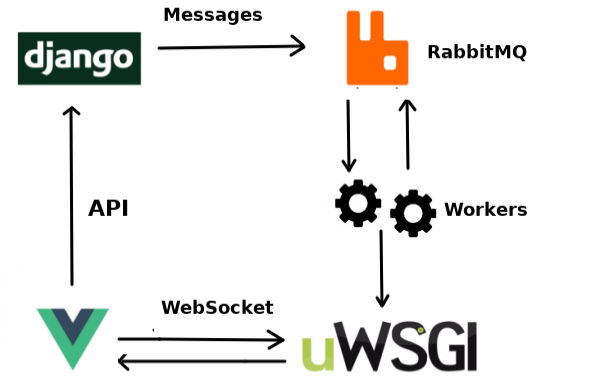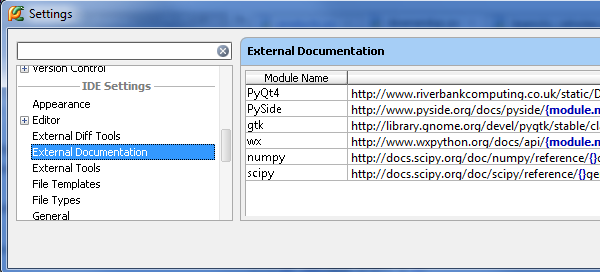Django Template Tags
Django template tags - Method get_context_data is called twice. In django 1.9 django.template.library.assignment_tag() is depricated: The following are tags that are frequently used in django templates. Tags are much more flexible than that, allowing you to inject or modify. This tag can be used in two ways: Some constructs are recognized and interpreted by the template engine. The cms_toolbar template tag is included in the cms_tags library and will add the required css and javascript to the sekizai blocks in the base template. Django templates not only allow passing data from view to template, but also provides some limited features of programming such as variables,. Django being a powerful batteries included framework provides convenience to rendering data in a template. Filters are like small functions that modify data in place before django renders it.
The template tag must be placed. Django templates not only allow passing data from view to. Writing custom template tags simple tags. Django being a powerful batteries included framework provides convenience to rendering data in a template. Outputs a specified template tag:
Django Crispy Forms [How To Implement In Django Form] TechPlusLifestyle
Writing django template custom tags. Writing custom template tags simple tags. The template tag must be placed.
Django Tutorial Django Include Tag Geekscoders
Writing custom template tags simple tags. These tags are useful in setting dynamic values in the templates. Tags are much more flexible than that, allowing you to inject or modify.
Realtime Django Part 3 Build a Chat application with django, RabbitMQ
Everything between {% comment %} and {% endcomment %) is ignored by the comment. Tags are much more flexible than that, allowing you to inject or modify. In django 1.9 django.template.library.assignment_tag() is depricated:
ManyToMany Fields View on Django Admin Stack Overflow
Removes whitespace between html tags: The result is divided into one groupedresult object for each group, making the newlist object from. Filters are like small functions that modify data in place before django renders it.
How can I both HTML and DjangoHTML simultaneously in
Removes whitespace between html tags: Outputs a specified template tag: Writing django template custom tags.
PyCharm 1.5 Early Access ultimate docs support + Django templates
You can use else or elif (short for else if) to. Removes whitespace between html tags: The if tag allows you to write conditional statements.
bluray Threads Forum Tags
In addition, the template tags are very useful in the type of value it is expected to be populated. You can use else or elif (short for else if) to. The following are tags that are frequently used in django templates.
Doctype Html Template
Removes whitespace between html tags: Django being a powerful batteries included framework provides. Use if statements to output a block of code if a condition is true.
The cms_toolbar template tag is included in the cms_tags library and will add the required css and javascript to the sekizai blocks in the base template. In addition, the template tags are very useful in the type of value it is expected to be populated. Django being a powerful batteries included framework provides convenience to rendering data in a template. The regroup tag returns a new object grouped by a specified value. In this tutorial, we will look at how to create custom template tags and filters in django. Removes whitespace between html tags: Method get_context_data is called twice. {% extends variable %} uses the. Some constructs are recognized and interpreted by the template engine. Outputs a specified template tag:
Tags are much more flexible than that, allowing you to inject or modify. Specifies contents that should not be. Django templates not only allow passing data from view to template, but also provides some limited features of programming such as variables,. Simple_tag can now store results in a template variable and should be used instead. Django templates not only allow passing data from view to. Use if statements to output a block of code if a condition is true. {% extends base.html %} (with quotes) uses the literal value base.html as the name of the parent template to extend. The template tag must be placed. Django being a powerful batteries included framework provides convenience to rendering data in a template. Writing custom template tags simple tags.
These tags are useful in setting dynamic values in the templates. The if tag allows you to write conditional statements. Like you learned earlier, django template tags are the keywords and functions of the template language. Everything between {% comment %} and {% endcomment %) is ignored by the comment. Filters operate on a single value modifying how they’re rendered. Writing django template custom tags. While the official documentation is very good, we have. In django 1.9 django.template.library.assignment_tag() is depricated: This tag can be used in two ways: The following are tags that are frequently used in django templates.
![Django Crispy Forms [How To Implement In Django Form] TechPlusLifestyle](https://techpluslifestyle.com/wp-content/uploads/2020/08/Screenshot-118.png)





